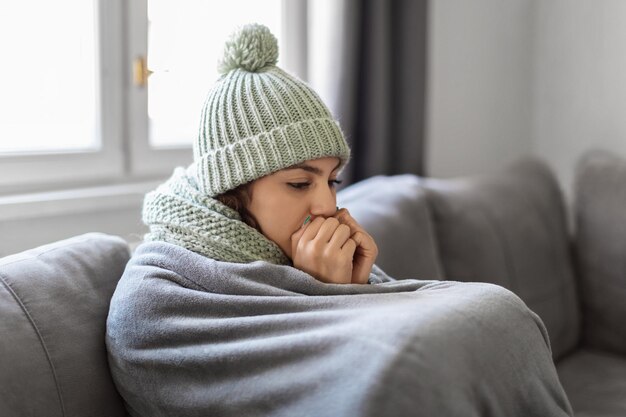Recognizing Malaria: Symptoms You Shouldn't Ignore
When we think about travel to tropical regions, the allure of exotic landscapes and diverse cultures often captivates us. Yet, amidst the excitement, one must remain vigilant about health, particularly concerning malaria—a disease that's as ancient as it is formidable. Recognizing the symptoms of malaria is essential for quick action and effective treatment. Let's delve into this topic to empower you with the knowledge to identify and respond to malaria's symptoms effectively.
What is Malaria?
Malaria is a mosquito-borne infectious disease caused by the Plasmodium parasite. The disease is primarily transmitted through the bites of infected Anopheles mosquitoes. While malaria is preventable and treatable, it remains a significant health challenge, with millions affected worldwide, particularly in sub-Saharan Africa, Asia, and South America.
Fast Fact: Approximately 229 million cases of malaria are recorded annually, with the highest burden on children under five and pregnant women.
Classic Symptoms: What to Watch For
The Fever Cycle
One of the hallmark symptoms of malaria is a recurrent fever, often accompanied by chills. This occurs as the parasites destroy red blood cells and trigger the release of toxins. The fever usually manifests in three stages:
- Cold Stage: Characterized by chills and shivering.
- Hot Stage: High fever, often exceeding 104°F (40°C).
- Sweating Stage: Profuse sweating as the fever breaks.
Pro Tip: Recognizing these cyclical episodes is crucial, as they often occur every 48 to 72 hours, depending on the Plasmodium species involved.
General Malaise
Beyond fever, other symptoms can include:
- Headache: Often described as throbbing and severe.
- Muscle Aches: Experienced throughout the body, similar to flu aches.
- Fatigue: Profound and progressive, impacting daily activities.
- Nausea and Vomiting: Gastrointestinal upset that compounds the feeling of unease.
Advanced Symptoms: When Malaria Complicates
Severe Malaria
Left untreated, malaria can escalate to severe malaria, characterized by more serious complications:
- Anemia: Due to the destruction of red blood cells, leading to fatigue and pallor.
- Jaundice: Yellowing of the skin and eyes from liver involvement.
Cerebral Malaria
This is the most severe form and involves an infection of the brain. Symptoms can include:
- Seizures
- Confusion and Altered Consciousness
- Coma
Urgent Note: These symptoms demand immediate medical attention as cerebral malaria can be fatal if left untreated.
Recognizing Variances: Symptoms by Plasmodium Species
There are five Plasmodium species that cause malaria in humans, each with unique symptom profiles:
Plasmodium falciparum
Most deadly and prevalent in Africa. It can cause severe anemia, hypoglycemia, and cerebral malaria.
Plasmodium vivax
Common in Asia and Latin America, notable for long dormant periods before symptoms and potential relapses.
Plasmodium ovale
Similar to P. vivax but less common, often involving prolonged liver stages.
Plasmodium malariae
Causes less severe illness but can lead to chronic infection, persisting silently in the blood for years.
Plasmodium knowlesi
Primarily affects macaques but can infect humans, leading to rapidly progressing malaria that requires prompt treatment.
Malaria and the Immune Response
The immune system's role in responding to malaria is both protective and problematic. While it combats the invading pathogens, the immune response can also cause many of the symptoms associated with the disease, including fever and inflammation.
Host Factors
- Genetic Factors: Certain genetic traits, like sickle cell trait, can provide some resistance to malaria.
- Immunity from Prior Exposure: Individuals in endemic areas might develop partial immunity, reducing symptom severity despite recurrent exposure.
Understanding: Knowing how your body might react can help in distinguishing malaria symptoms from other similar illnesses.
Prevention: Staying Ahead of Malaria
Prevention is critical, particularly if you're traveling to endemic regions. Here are some effective strategies:
Mosquito Protection
- Long-lasting insecticide-treated nets (LLINs): A must for sleeping environments.
- Repellents containing DEET: Apply to exposed skin and clothing.
- Covering Up: Wearing long sleeves and trousers during peak mosquito activity times (dusk and dawn).
Prophylactic Medications
Consult a healthcare provider about antimalarial medications if planning travel to endemic areas. These can significantly reduce the risk of infection.
Vector Control
In countries with endemic malaria, community-wide efforts include indoor residual spraying and environmental management to reduce mosquito habitats.
If Symptoms Occur: Taking Next Steps
Seeking Medical Help
Early Diagnosis: Visiting a healthcare center at the first sign of symptoms can allow for rapid diagnostic tests or blood smears to confirm malaria.
Treatment: Follow prescribed antimalarial medication regimens precisely to ensure effectiveness and minimize the risk of resistance.
Awareness and Monitoring
Keep track of symptom patterns and severity, providing detailed information to healthcare professionals to aid in accurate diagnosis.
In Closing: Stay Informed and Prepared
Malaria remains a global health challenge, yet with awareness and proactive measures, you can protect yourself and your loved ones. By recognizing the symptoms early and seeking timely care, the impacts of malaria can be substantially mitigated. Knowledge, preventive strategies, and prompt action are your best defenses against this persistent foe.
Quick Summary of Key Points:
- Symptoms Cycle: Fever, chills, fatigue, headache, and muscle aches. ⏰
- Severe Forms: Anemia and cerebral symptoms are critical—seek immediate care. 🚨
- Species Variability: Each Plasmodium species presents differently, tailing treatment strategies. 🔍
- Prevention is Vital: Use insecticide-treated nets, repellent, and prophylactics when in endemic areas. 🛡️
- Swift Action: Consult healthcare providers promptly for suspected cases. 🏥

